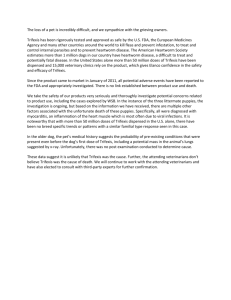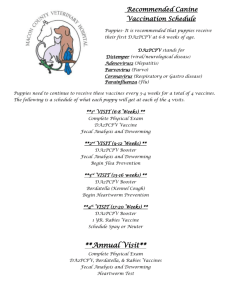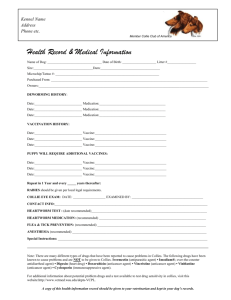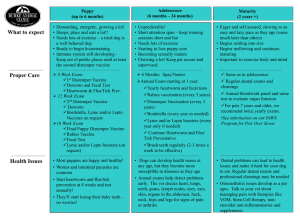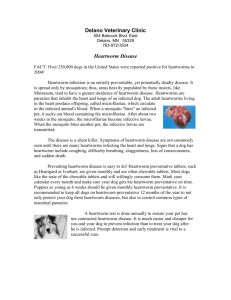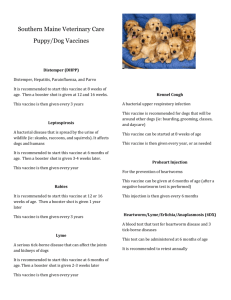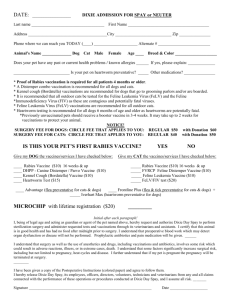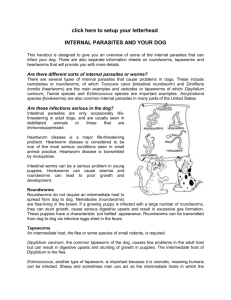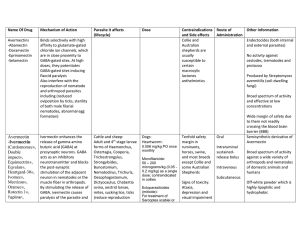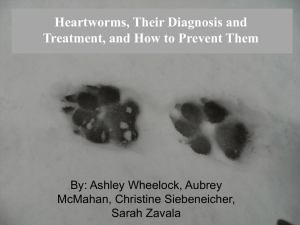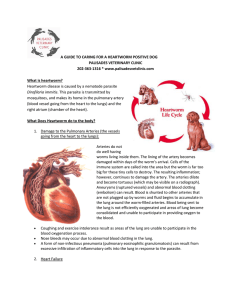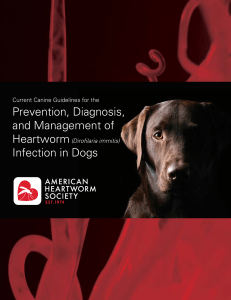YOUR DOG`S ANNUAL EXAM - East Lansing Veterinary Clinic
advertisement
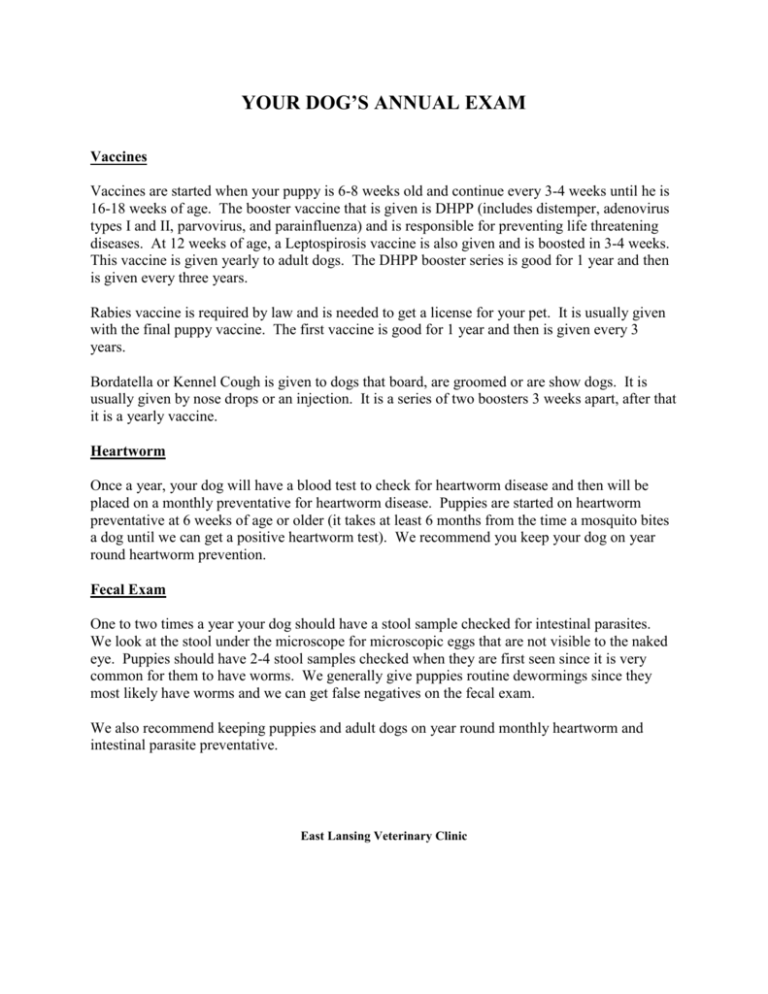
YOUR DOG’S ANNUAL EXAM Vaccines Vaccines are started when your puppy is 6-8 weeks old and continue every 3-4 weeks until he is 16-18 weeks of age. The booster vaccine that is given is DHPP (includes distemper, adenovirus types I and II, parvovirus, and parainfluenza) and is responsible for preventing life threatening diseases. At 12 weeks of age, a Leptospirosis vaccine is also given and is boosted in 3-4 weeks. This vaccine is given yearly to adult dogs. The DHPP booster series is good for 1 year and then is given every three years. Rabies vaccine is required by law and is needed to get a license for your pet. It is usually given with the final puppy vaccine. The first vaccine is good for 1 year and then is given every 3 years. Bordatella or Kennel Cough is given to dogs that board, are groomed or are show dogs. It is usually given by nose drops or an injection. It is a series of two boosters 3 weeks apart, after that it is a yearly vaccine. Heartworm Once a year, your dog will have a blood test to check for heartworm disease and then will be placed on a monthly preventative for heartworm disease. Puppies are started on heartworm preventative at 6 weeks of age or older (it takes at least 6 months from the time a mosquito bites a dog until we can get a positive heartworm test). We recommend you keep your dog on year round heartworm prevention. Fecal Exam One to two times a year your dog should have a stool sample checked for intestinal parasites. We look at the stool under the microscope for microscopic eggs that are not visible to the naked eye. Puppies should have 2-4 stool samples checked when they are first seen since it is very common for them to have worms. We generally give puppies routine dewormings since they most likely have worms and we can get false negatives on the fecal exam. We also recommend keeping puppies and adult dogs on year round monthly heartworm and intestinal parasite preventative. East Lansing Veterinary Clinic Physical Exam Your dog should have a physical exam at least once a year. We will examine his teeth, eyes, ears, listen to his heart and lungs and palpate his abdomen. We are looking for any abnormalities (dental disease, ear infections, heart murmurs, etc.) and any input you can give us as to your pet’s health at home will be helpful. It is very important for puppies to be examined as they receive their boosters. They are growing and changing rapidly and a physical exam can help detect problems that otherwise may not be apparent. Blood Profile We recommend drawing extra blood when we are drawing blood for the heartworm exam so that we can check for early signs of disease, including kidney failure, liver failure, diabetes, and anemia. This is particularly good to do in animals that will be anesthetized for general surgery (spays, neuters, dentistry) or in older animals. The purpose is to catch a disease process in the early stages before it becomes a big problem. East Lansing Veterinary Clinic
